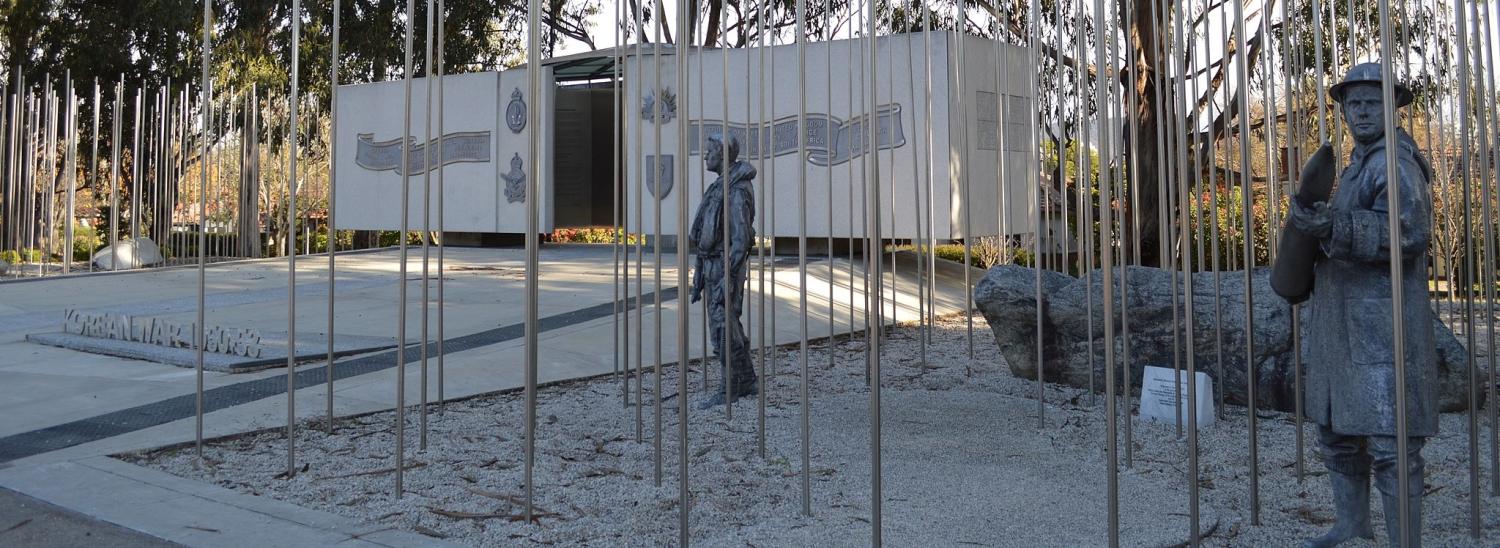In light of recent discussion about Australia's responsibilities under the Korean Armistice Agreement, we are republishing this post that first appeared on 29 November, 2010.
In 1985, I published a paper entitled 'Australia and the Republic of Korea: Still Allies or Just Good Friends'. I had not long returned from a lengthy posting to Seoul and was curious to know whether my former colleagues in the ROK were correct in claiming that, in the event of another Korean war, Australia would be obliged under international law to send armed forces back to the peninsula.

The Royal Australian Regiment (2RAR) in Majon'ni, Korea, 1953 (Photo: Aust. War Memorial)
The latest DPRK provocations, and Justin Jones' timely reminder about Australia's continuing membership of the United Nations Command (UNC), has prompted me to take another look at that paper. After 25 years it begs for revision, but even so, it reminds me that there are at least four historical issues that are still relevant and would need to be considered by Canberra, should serious hostilities resume in Korea.
Firstly, in 1953 the document signed by the DPRK, China and the UNC (on behalf of its members, including Australia and the ROK), was an armistice agreement only. There has never been a peace treaty concluding the war which, formally at least, continues to this day. Partly as a consequence, the UNC has never been dissolved by the UN Security Council. While it was for many years a legal fig leaf to cover US military assistance to the ROK, the fact remains that the UNC still exists, and not just on paper.
Secondly, Australia is one of the UNC’s few remaining active members. The Australian Defence Attaché in Seoul has been accredited to the UNC and has acted as a member of the Advisory Group which supports the Military Armistice Commission. Members of the ADF posted to Japan are usually accredited to the UNC's Rear Echelon. As Justin has pointed out, UNC (Rear) is currently commanded by an Australian serviceman, the first time that this position has not been held by a US officer.
Thirdly, after the Armistice Agreement was signed at Panmunjom, the 16 countries which had contributed combat forces to the UNC issued a formal statement in Washington. It affirmed that 'if there is a renewal of the armed attack...we should again be united and prompt to resist'. As the official historian of our involvement in the Korean War has pointed out, Australia has never repudiated any of the obligations contained in this document, which envisaged future hostilities extending beyond the peninsula.
A fourth way that pressure could be put on Australia to join in a renewed Korean conflict is through the ANZUS Treaty. Notwithstanding the treaty's vagueness, and past arguments against its applicability to the Asian mainland, over the years several Australian politicians — most recently Kevin Rudd — have suggested that the treaty would apply if US forces in and around Korea came under attack. The treaty has already been invoked in a much broader context, namely global terrorism.
In my 1985 paper, I said that it was difficult to envisage another armed conflict of significant proportions on the Korean peninsula in which Australia was not asked to make a contribution of some kind. After canvassing a range of issues, however, I concluded that no Australian government would feel bound by historical precedent or outdated legal instruments. They may be cited for diplomatic or other reasons, but Canberra would make its final decision based on all the factors — both domestic and international — that were relevant at the time.
Despite some recent precedents to the contrary, that still seems the most likely outcome of any such deliberations — or at least, one hopes so.

